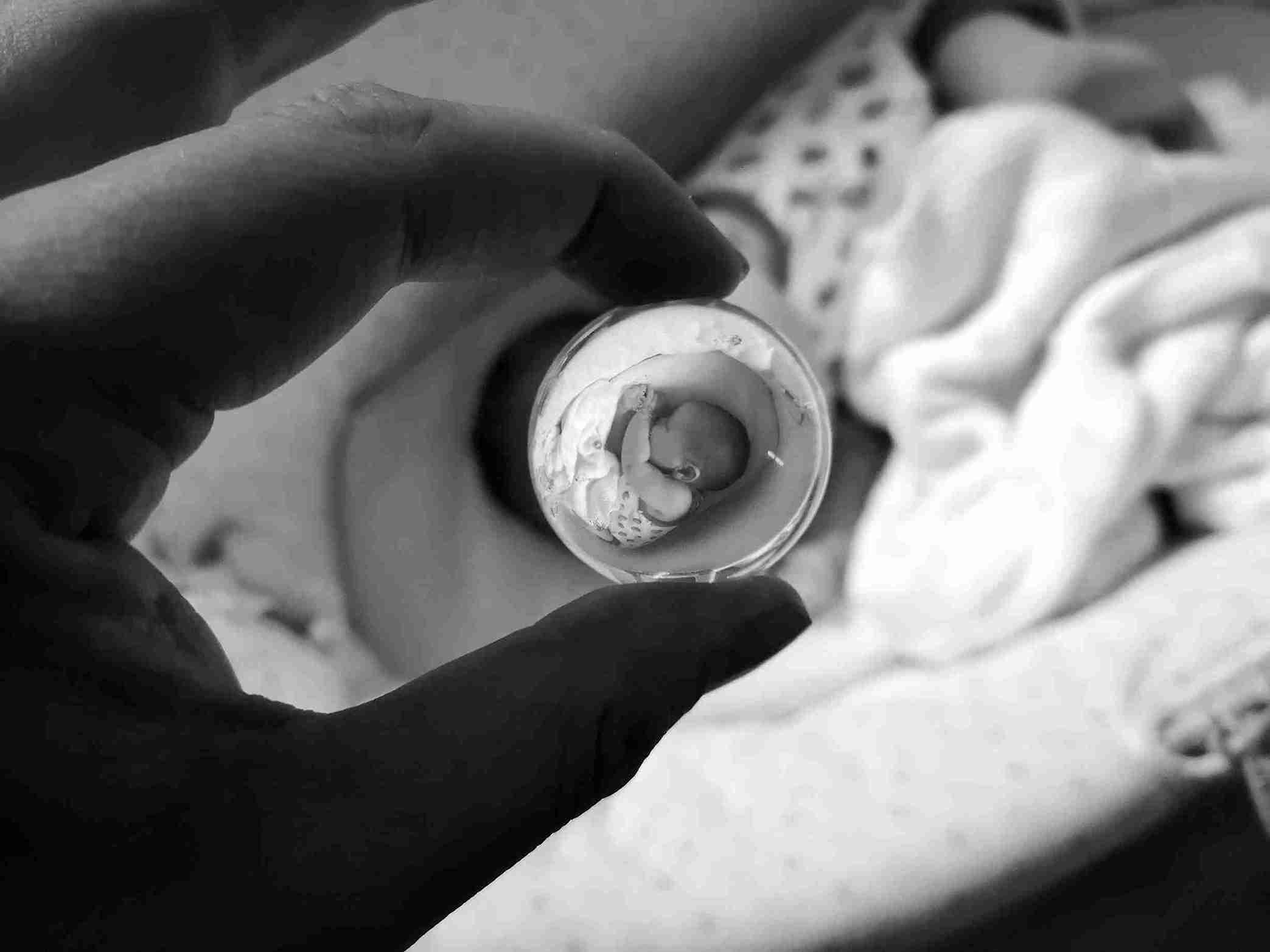
Congratulations on your embryo transfer! Going through fertility treatment is not an easy task. The longer the treatment plan or wait, the harder it can get – both physically and emotionally. You have given it your all so far and have reached this stage after a lot of deliberations and effort. Now is not the time to slack. It’s time to take good care of yourself and follow some precautions after embryo transfer to ensure a successful outcome.

First, let’s understand what an embryo transfer is in IVF treatments and why it is important for the success of the entire fertility treatment.
In an IVF treatment, the eggs from the female partner and the sperm from the male partner are extracted and put together in a lab dish for fertilisation. After fertilisation, the zygote will start developing into an embryo. On day 3 or day 5, after the embryo formation, the fertility specialist will decide to transfer the embryo into the female partner’s uterus.
After the embryo transfer, everyone has to just wait for the natural process of implantation to take place. When the embryo attaches to the uterine wall successfully, the implantation is successful and results in a positive pregnancy result.
This embryo transfer is a crucial step in fertility treatments as this is where the technical intervention ends, and the natural process takes over. The embryo transfer depends on multiple factors, and hence, it is important to take good care of oneself during this crucial period.
If you are looking for some best practices post embryo transfer for success, here are a few for you:
If you have been doing your part for your IVF treatment, you are sure to be eating healthy for a while now. Continue focussing on a good diet and nutrition after embryo transfer too. You can include foods rich in iron, folate and other essential nutrients like you would during pregnancy. Increase your intake of fresh fruits and vegetables and cut back on processed foods.
Ensure you drink plenty of water and other liquids. Liquids with caffeine in them can dehydrate you. Staying hydrated facilitates optimal cell functioning, which is crucial during conception and pregnancy.
If you are not taking your prenatal vitamins yet, now can be a good time. You need not wait till pregnancy confirmation to start taking your folic acid supplements. Avoid taking random over-the-counter prenatal vitamins or those sold by non-pharmaceutical companies. It is advisable to consult your doctor and consume only those prescribed to you.
If you are still smoking or drinking alcohol, now is the time to stop it all. Today, many of our products contain harmful chemicals that can cause hormonal imbalances. Some can even cross the placenta and reach the baby. Be careful with the products you use- not just what you put inside your body but also on it. Start reading the labels, do your research about brands, and choose wisely.

Waiting for the results of the embryo transfer can be very challenging. If you are tempted to go out on the run or physically exert yourself to relax or just forget about the entire issue until the test results come in, don’t! Now is not a good time to physically exert yourself to relax and get the feel-good hormones flowing in. You need to lay low physically and take it easy, as exertion may interfere with the implantation.
Hot tubs, saunas or the Jacuzzi can be very relaxing. However, they all involve a lot of heat, and exposing yourself to heat, especially the lower body, may not be a good idea after your embryo transfer. These activities can elevate your core body temperature and interfere with implantation or even lead to miscarriages.
Sexual acts can cause uterine contractions, which can affect the embryo’s ability to implant properly. Abstaining from sex for about 15 days after the embryo transfer should suffice unless your doctor advises longer abstinence. Ask your doctor about the waiting period and what activities to avoid during this delicate period.
Your body tells you many things. Paying close attention to the smallest changes can give you clues about what is happening inside. Even if you feel something is different or just off, consult your doctor and let them know what changes you are experiencing. Small changes like sudden weight gain, bloating or abdominal pain, digestive issues, nausea or vomiting may indicate OHSS – Ovarian Hyper Stimulation Syndrome, which is a common side effect of IVF treatments. It is better to check with a doctor and rule out issues rather than assuming it is nothing.
Stress can negatively impact fertility and fertility treatments. It is natural to stress about the results of the embryo transfer and worry about possible negative results, but try doing something about it. Meditation, yoga, art, or some hobby can help de-stress and make the wait easier.
It is quite natural to want to take a pregnancy test as soon as possible. Remember, your body needs enough time to produce hCG hormones that are sufficient enough to reflect on a home pregnancy urine test kit. Taking a test too early can give you a false negative. Feeling depressed or stressed with a false negative can have an impact on the actual results itself. So, wait till your scheduled appointment to take a pregnancy test.

Embryo transfer is an important step in IVF treatments. Following the above-mentioned dos and don’ts does not guarantee a positive outcome but can help increase the chances of success and reduce risks. Every IVF cycle is unique. and not everything is under your control. Follow the doctor’s advice and stay positive for a stress-free experience.

You can resume normal activities a day after the embryo transfer. However, it is best to avoid any strenuous activities, heavy weight lifting and, in many cases, even sexual intercourse until your next doctor appointment to take the pregnancy test.

You should avoid smoking, drugs, consuming alcohol, raw or undercooked meats, unpasteurised dairy and foods rich in sugar, trans fats and salt, as these can affect the hormonal balance and impact the implantation process.

If you are under a lot of stress, take up activities like yoga, meditation, art or any hobby that can help reduce the stress. You can seek professional counselling to help you through this challenging time.

In most cases, doctors advise to avoid sexual intercourse soon after the embryo transfer. Consult your doctor regarding the same and find out how long you need to wait before resuming sexual activities.